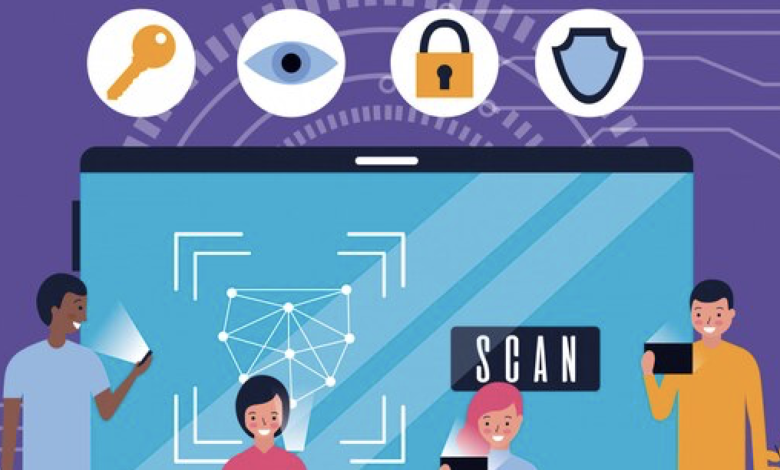
Imagine a small and medium-sized business (SMB), a family-owned clothing chain with a loyal customer base that cherishes personalized service. To enhance customer experience, this business aims to leverage Artificial Intelligence (AI) for personalized recommendations and marketing campaigns. This requires collecting and analyzing customer data, including purchase history, browsing behavior, and loyalty program information. However, the SMB faces a significant challenge: complying with stringent data privacy regulations like the General Data Protection Regulation (GDPR) or the California Consumer Privacy Act (CCPA).
For SMBs, the promise of AI is immense and includes analyzing customer data and recommending products, offering targeted discounts, and personalizing in-store experiences. This can generate increased customer satisfaction, loyalty, and sales. Yet, collecting and using customer data raises legitimate privacy concerns. SMBs must ensure that they have a lawful basis for collecting data, implement robust security measures, and provide customers with clear information about how their data is used and their rights to access or delete it.
Simplifying Compliance with AI-Powered Tools
Today there are AI-powered solutions that can simplify the process of obtaining and managing customer consent for data collection. Such AI tools can provide a clear explanation about what data is collected and how it’s used, offer easy-to-use mechanisms for customers to grant, withdraw, or modify their consent, and track and maintain a record of customer consent preferences.
AI can also be used to anonymize or pseudonymize customer data before using it for analysis. This reduces the risk of identifying individuals while still allowing businesses to extract valuable insights for personalization. Privacy-enhancing AI techniques, such as differential privacy or federated learning, allow AI models to be trained and used without directly revealing individual customer data. However, implementing and maintaining AI solutions may require resources beyond the capacity of SMBs; a conundrum for SMBs across industries, as they strive to comply with complex regulations.
The Burden of Regulatory Compliance
Take, for example, a small accounting firm with perhaps 10 employees that needs to comply with anti-money laundering (AML) regulations. This requires the firm to collect and verify customer identification information, monitor transactions for suspicious activity, and report any potential money laundering to the authorities. Manually checking all customer information and monitoring transactions is time-consuming and error-prone for a small team, and a missed red flag could result in hefty fines. In Europe, a small business that fails to comply with the GDPR can face fines of up to €20 million or 4% of their annual global turnover, whichever is higher.
On the other hand, the US lacks a single, overarching data privacy law like the GDPR. This results in a more complex landscape for handling US citizen data, as there’s a patchwork of regulations depending on the industry and the type of data. Not being vigilant could mean a death sentence for the SMB.
Keeping up with regulations, is a time and resource drain, for SMBs which often lack dedicated legal or compliance teams. AI-powered tools today can be used to monitor regulatory changes and keep businesses informed of deadlines and new requirements. It can automate repetitive tasks like data collection, reporting, and risk assessments, freeing up valuable time and resources for an SMB. AI-powered chatbots can provide employees with compliance training, ensuring everyone in the organization is aware of their regulatory obligations.
The Role of Standards in Cybersecurity
Across industries such as healthcare, banking, and financial services, regulators are pushing for specific privacy and data guidelines. In the United States, the National Institute of Standards and Technology (NIST) provides a framework and a collection of publications that offer guidance for organizations on how to improve their cybersecurity posture. These standards, though they set a high bar for security and best practices, are not mandatory. Yet many businesses choose to follow them because they provide a robust foundation for cybersecurity, demonstrate a commitment to data protection, and can enhance an organization’s reputation. In Europe, the NIS2 Directive sets cybersecurity requirements for businesses across the European Union.
Compliance and cybersecurity are two sides of the same coin when it comes to data protection. About 46% of all cyber breaches impact small businesses with fewer than 1,000 employees, making robust cybersecurity an existential necessity driven by regulation and third-party mandates. As SMBs frequently operate as vendors or suppliers to larger enterprises, they must meet tough third-party security requirements. With supply chain attacks on the rise, big businesses are enforcing strict security standards across partner ecosystems to mitigate risks.
Affordable Cybersecurity Solutions for SMBs
The need for SMBs to enhance their security posture is clear, but budget constraints often inhibit the adoption of enterprise-grade security solutions. This has opened opportunities for cybersecurity providers to deliver right-sized, affordable solutions tailored to SMB needs and budgets through cloud delivery models and subscription pricing. Cost-effective, cloud-based security platforms bundle essential capabilities, such as web/email protection, endpoint security, Security Information and Event Management (SIEM), and vulnerability management, into integrated, easy-to-deploy packages. Automation and simplified management have reduced the need for large in-house security teams. SMBs’ spending on cybersecurity is expected to reach $109 billion worldwide in 2026.
By partnering with SMB-focused cybersecurity vendors, smaller organizations can meet compliance mandates, secure their critical assets, and build cyber-resilience without breaking the bank. Vendors are taking an integrated approach, bundling essential security capabilities into unified, cloud-delivered platforms. These solutions centralize the technology stack, people, and processes such as 24/7 monitoring and incident response, providing comprehensive security at predictable operating costs aligned with SMB budgets.
AI/ML plays a pivotal role in driving automation, detection efficacy, and simplified operations that can lead to cost savings. Leading SMB-focused cybersecurity vendors have democratized access to cutting-edge security capabilities once solely affordable to large enterprises. This accessibility is crucial as SMBs face the same threat landscape and regulatory pressures as big businesses but lack resources to dedicate to cybersecurity.
Ultimately, the compliance conundrum for SMBs can be effectively navigated with the right AI-powered tools and strategies. By leveraging AI to automate and simplify compliance processes, SMBs can meet regulatory requirements, protect customer data, and stay competitive in an increasingly data-driven world.





